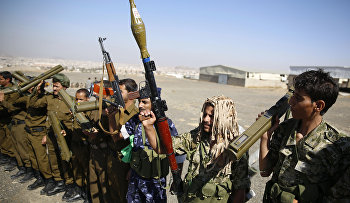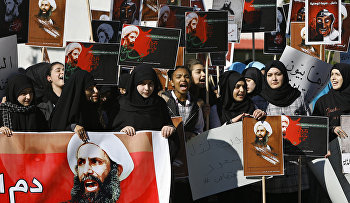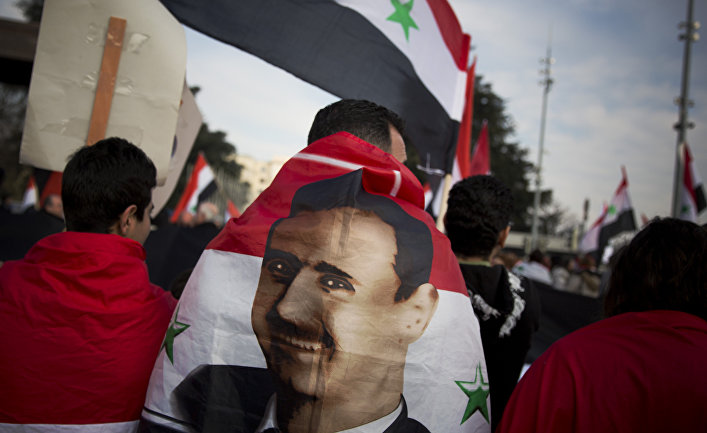The ball is clearly currently in the court of the 'Baghdad Quartet' – the anti-terror coalition of Russia, Syria, Iraq and Iran, along with their Hezbollah allies. Over the past few weeks the Syrian government army – with Russian air support, and Iranian reinforcements – has won a series of victories, and regained control of significant swathes of territory in Central and North-Western Syria. Alongside the victories won militarily, the Syrian forces have similarly gained control of some areas through negotiation process with local militia leaders who have written-off their own chances for holding out against the army any further. The triumphant mood among the military is filtering through onto the international arena – notably, that the UN Security Council passed a Resolution calling for taking out the sources of funding which prop-up Syrian terrorism. The lifting of international sanctions on Iran has been a further plus – it ties the wrists of the 'Islamic Republic' while allowing Iran to throw more of its resources into the battle for Syria. But the biggest bonus now on the diplomatic table for the Quartet is solidarity of purpose — no matter how flaky or piecemeal — with the Americans.
How do you solve a problem like #Syria? EU still unresolved after #GenevaTalks https://t.co/fD5xiKi5AL #SyriaCrisis pic.twitter.com/2DEGZPELu5
— Sputnik (@SputnikInt) January 20, 2016
Of course, Moscow and Washington maintain their entirely contradictory views on how to resolve the Syrian crisis, yet the two sides are at least united in a common purpose – annihilating Daesh, and stabilizing the Middle East by stamping out the blaze of civil war in Syria. This is the backdrop which prompted US Secretary of State John Kerry and Russian FM Sergey Lavrov to arrange a hasty conference in Zurich, to kick the new ball into play with aplomb. US State Department spokesperson John Kirby announced that “Kerry and Lavrov are agreed that UN-chaired talks on Syria need to get started as soon as possible – and, as planned, meetings will begin on 25 January in Geneva, with no preconditions on the agenda.” What this means in practice that there should be no demands that “Assad has to go,” or “Assad has to agree to his exit timetable before talks can begin.” These are valuable trump cards for the Syrian premier to hold at the negotiation table. It seems as though Moscow and Washington are going to put the clocks back before their talks begin – so that in addition to discussing Ukraine when they meet in Zurich on January 20, John Kerry and Sergey Lavrov will be talking Syria too.

The talks could end before they begin
However, there is a real possibility that the 25 January talks may never get off the starting blocks – and through no fault of Russia, the USA, or even Syria. It's an open secret that there is a whole raft of nations in the region who are sponsoring the Syrian terrorists quite overtly – including groups such as Daesh, Jabhat al-Nusra (al-Nusra Front, the Syrian affiliate of al-Qaeda – transl) and allied movements. Each of these groups aims at the overthrow of the Damascus administration, for its own reasons, and, unsurprisingly, welcomed the overseas support – even though the mobilization of Russian forces in Syria, and the lifting of the sanctions shackles on Iran have hugely worsened their chances. Talk in Damascus claims that the Syrian civil war is incapable of being calmed, specifically due to the involvement of these countries. “If these neighboring countries – I mean Turkey, Saudi Arabia, and Qatar – would only take a resolution to combat terrorism, then 70% of the Syrian crisis would be solved immediately – and I can promise to eliminate the remaining 30% by the end of this year” claimed Walid Muallem, the Syrian Foreign Minister.
Syria talks may not start on Jan. 25, 'pressure, momentum' needed: U.N. envoy https://t.co/cU72HtlReS
— Reuters Top News (@Reuters) January 20, 2016
Even so, the problem of Turkey and Saudi Arabia's provision of arms and cash to the militants isn't the only hurdle. Equally problematic is the sabotage these countries will provoke in the negotiations process, with the aim of bolstering the cause of their allies within the Syrian rebel ranks. In fact, the whole negotiations process is the Achilles' Heel for the Baghdad Quartet – unless the talks come off perfectly, cleaning-up Western Syria will become a hugely drawn-out process. Moscow and Tehran cannot accept such a delay in the struggle against Daesh. Moscow's plans are based on a campaign of air strikes aimed at causing havoc in Daesh's ranks that will convince the militants of the hopelessness of their campaign, and drag them into dialogue with Assad – about possible power-sharing in exchange for their capitulation. America, we should remember, has effectively supported the Russian game-plan. Barack Obama has refused to heed the rebel calls for military aid and heavy weapons to repulse the Russian air strikes. This leaves the rebels with a stark three-way choice – perish, pull out, or parley. Their situation is a modified version of the classic “prisoner's dilemma” — whichever of them makes the first move towards rapprochement with Assad will be first in line for any rewards that might be on offer.

Risks before the talks
The Turks and Saudis have broken up the party. Turkey shot down a Russian SU-24 warplane, and sponsored some militant operations – in the hope that Turkey might then send troops into Syria who would oppose the Russian military. Meanwhile Saudi Defense Minister Mohammed bin-Salman assured the group of Syrian militants he gathered in Riyadh that no negotiations whatsoever are needed with Assad – no foreign aid will bail him out this time. If the House of Saud succeeds in either convincing or buying-off enough of the leaders of the Syrian 'moderate' opposition leaders, the negotiations process would hit the buffers. Of course, Moscow and Tehran may continue to negotiate with individual warlords directly – but in doing so, they will only ensure that the war drags on indefinitely, to the great satisfaction of Riyadh. The clock is ticking. The upcoming year may bring with it fresh events that will upset the applecart in the Syrian conflict.






